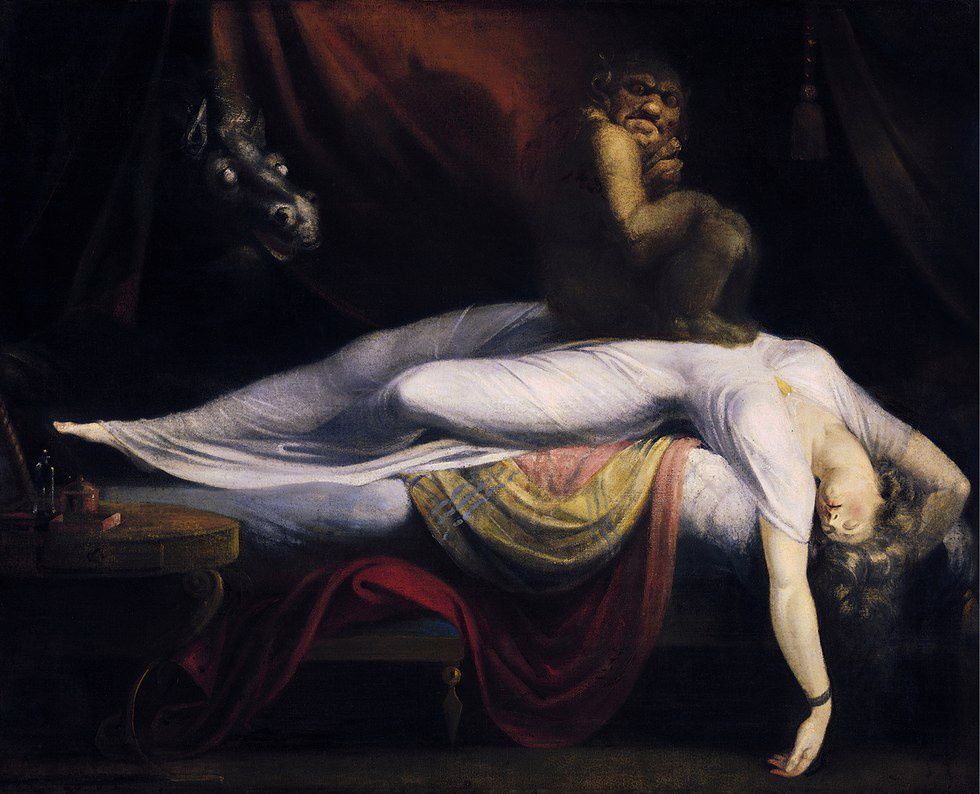When I first experienced sleep paralysis, I was 7 years old. I fell asleep, and when I woke up in the middle of the night, I knew something was wrong. I couldn't move my body, but I could open my eyes. And in the corner of the room, there stood a dark figure just watching me. I felt an overwhelming presence of evil, and I wanted to scream, but every inch of my body was tied to the bed. Then, I felt a slow but steady pressure on my chest, as if someone was slowly pushing me into the bed. I felt like I couldn't breathe. I started panicking, and for a second I thought I was going to suffocate to death. After what felt like an hour, I was finally able to move, but I was still reeling from the shock of what had happened.
At that young age, I had no idea what I had experienced. For the longest time, I thought I was having encounters with something supernatural and evil. I kept it quiet from my parents, who dismissed my ramblings as the overactive imagination of a young child. I continued to have sleep paralysis often, about once every month.
It was only when I got to High School that I finally had had enough. I googled my experience and something showed up; Sleep Paralysis. I started to read about sleep paralysis and experiences that other people had. I felt a wave of relief. The terrifying experiences I'd been having since I was young was something that could be explained through science. In the simplest terms, I was waking up before my last REM cycle was over. The paralyzed feeling in my arms and legs was actually a defense mechanism that happens during REM sleep, so I wouldn't act out my dreams while I was sleeping. As I researched more about sleep paralysis, I began to feel better as it was more common than I thought.
Sleep Paralysis has been around for many years. When I first saw Henry Fuseli's painting, "The Nightmare" I immediately felt a connection to it. I saw a visual picture of my sleep paralysis with the Incubus representing the feeling of someone sitting on your chest and not being able to breathe. Cultures have used the Incubus and "Night Hag" to explain sleep paralysis before they knew what was happening to them.
I still experience sleep paralysis but less frequently. I've noticed it happens when my sleep schedule is off, or if I take a lot of naps during the day. When I feel the onset of sleep paralysis coming, the hallucinations are still scary, but knowing it's just a figment of my imagination is comforting. I've also learned not to fight it; it often makes it scarier when you try to move and break free of the paralysis. Every sleep paralysis is different. I still experience some truly frightening ones where I was almost on the verge of tears and others where it was very mild. But if you ever experience it, know you are not alone, and the best advice I can give you is to just relax and realize that what you might be hearing or seeing is not real.









 The minimum wage is not a living wage.
StableDiffusion
The minimum wage is not a living wage.
StableDiffusion
 influential nations
StableDiffusion
influential nations
StableDiffusion












